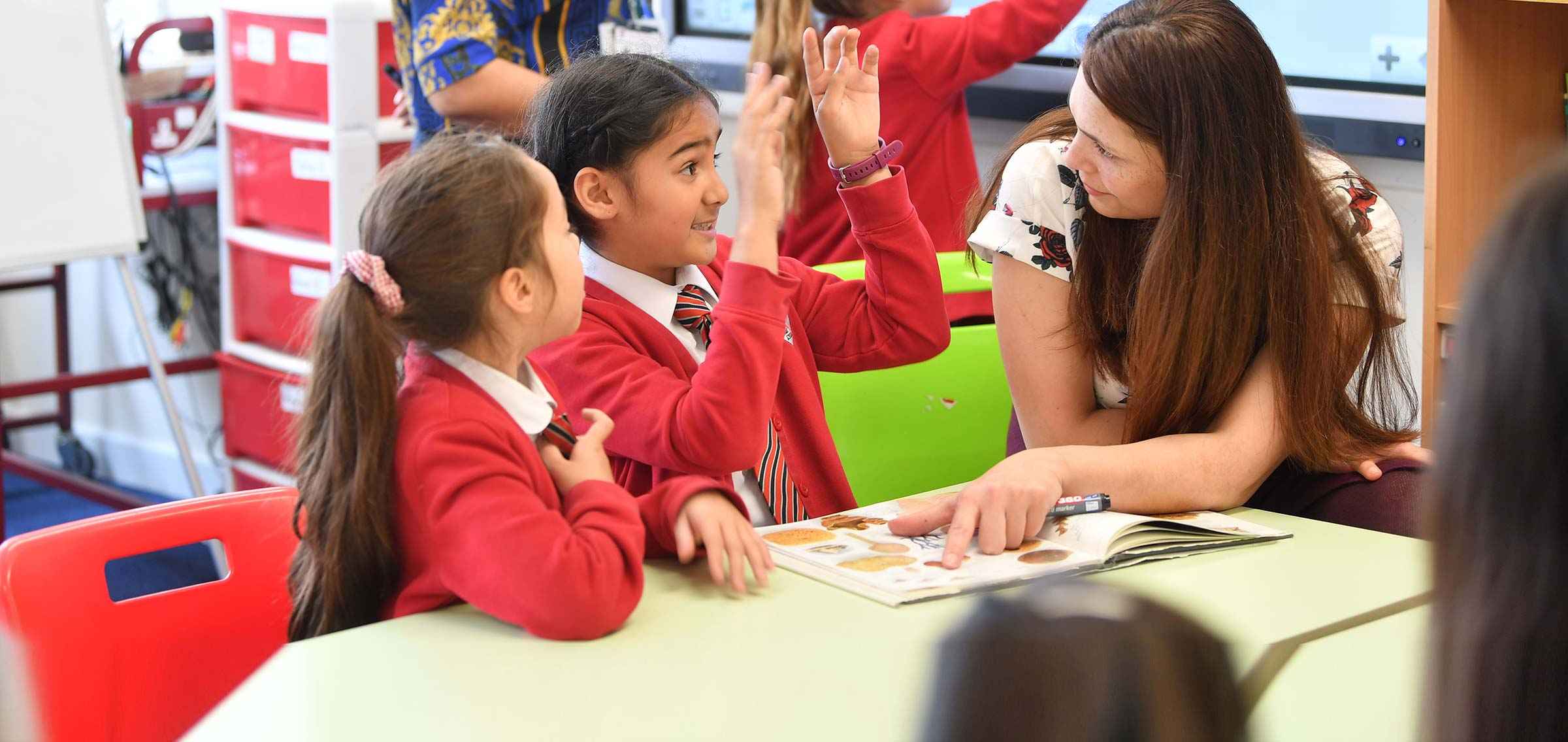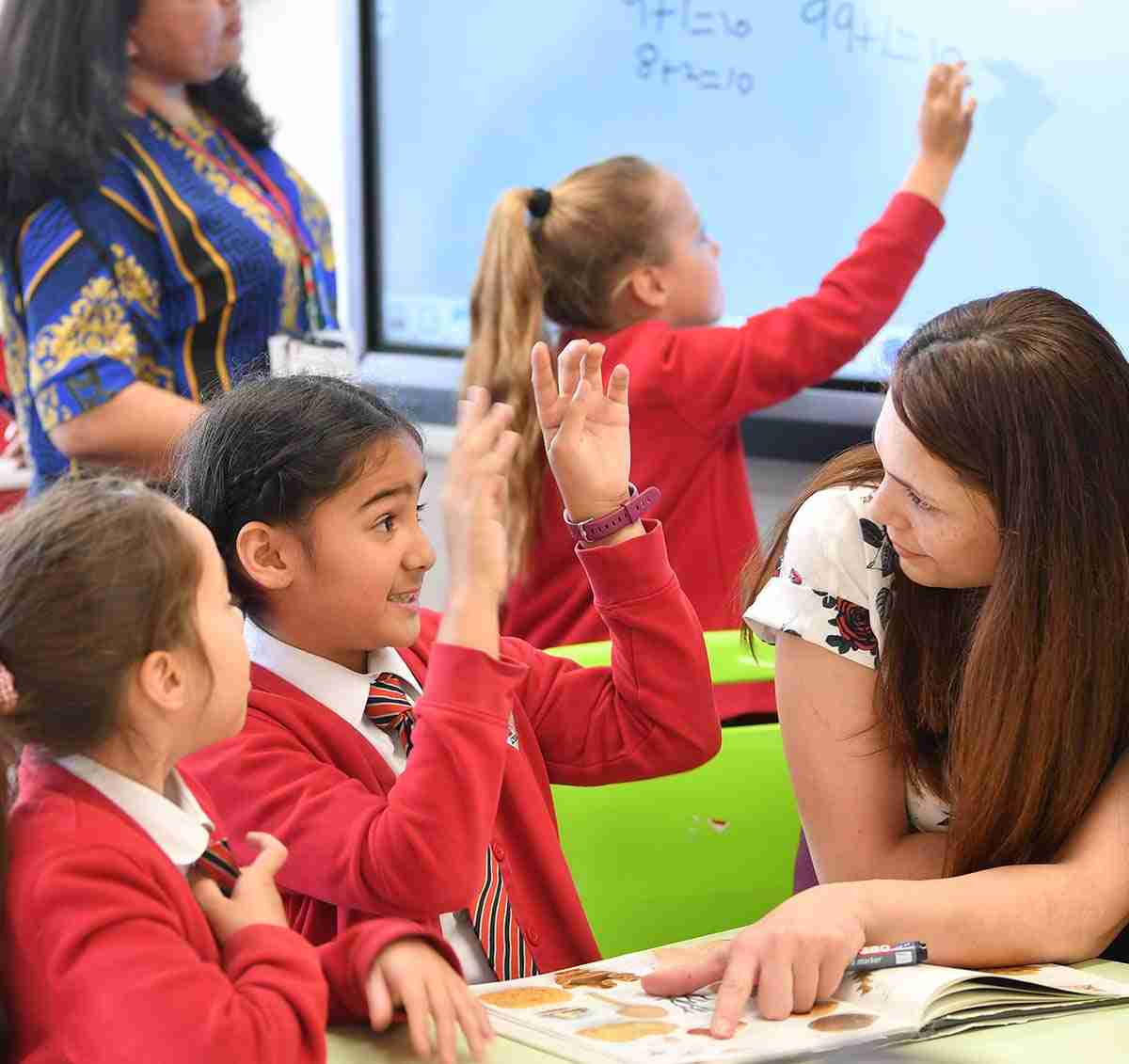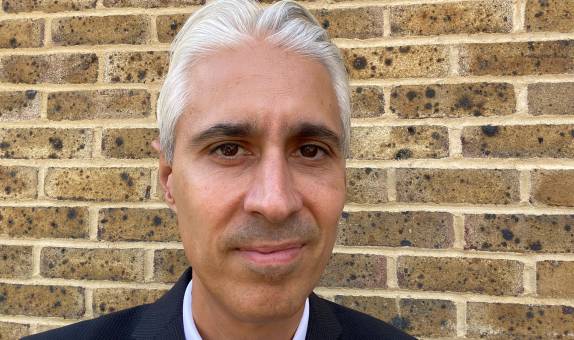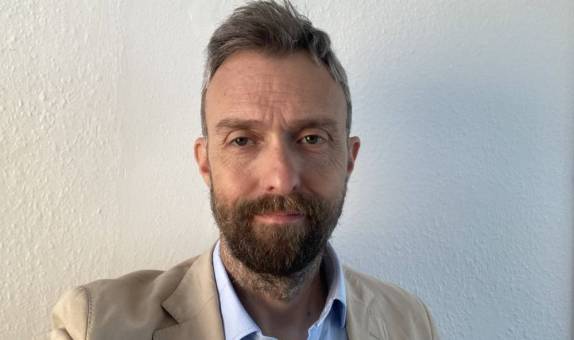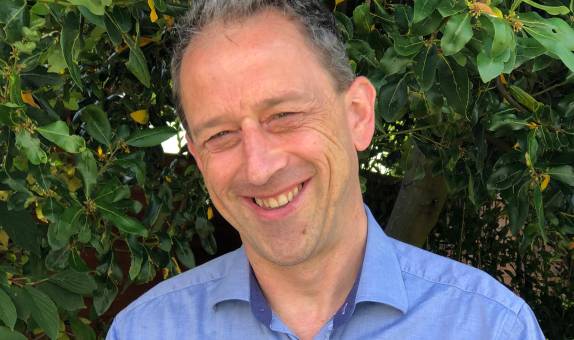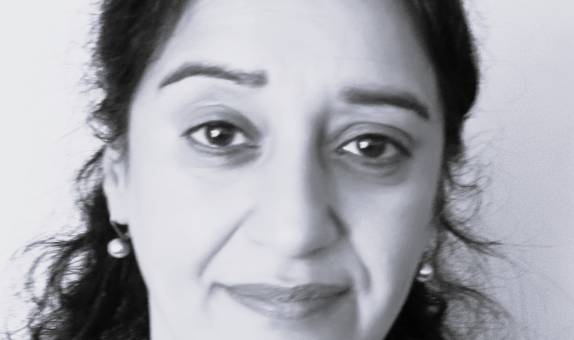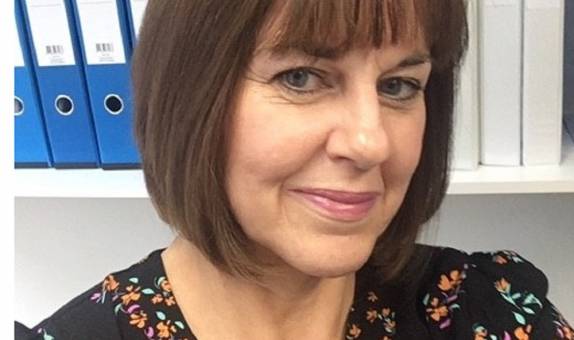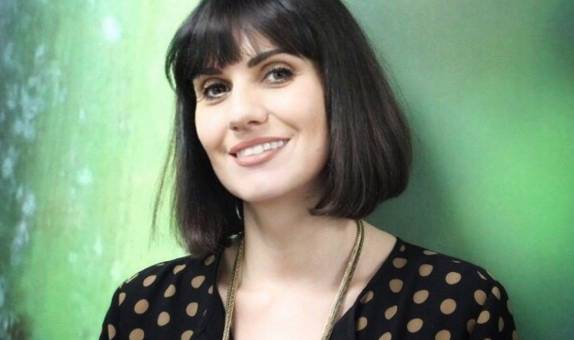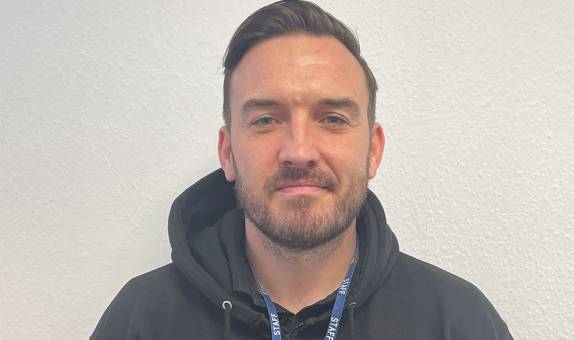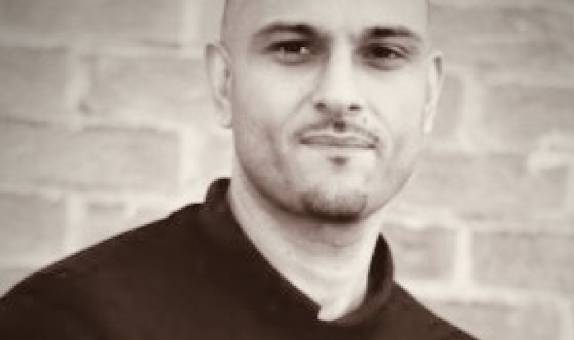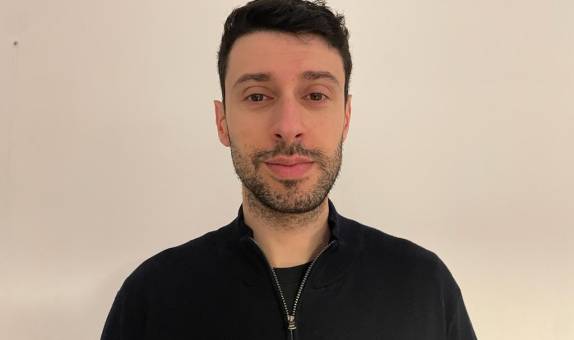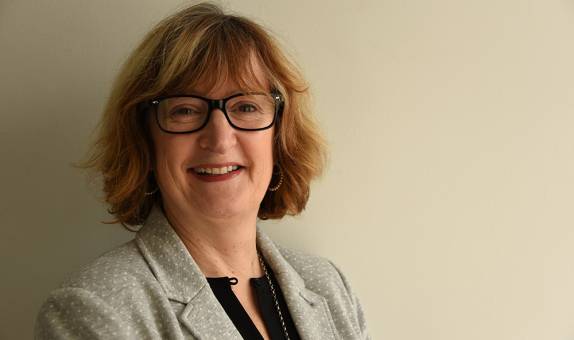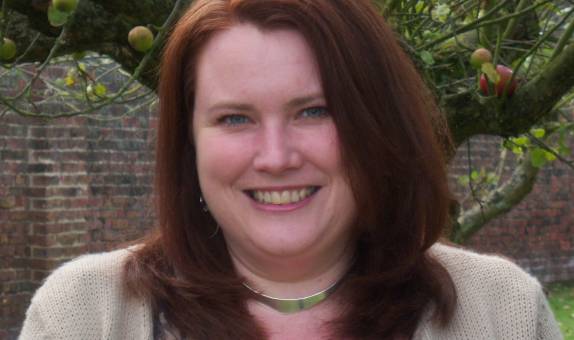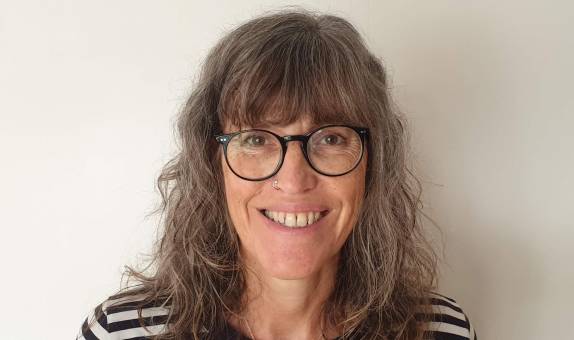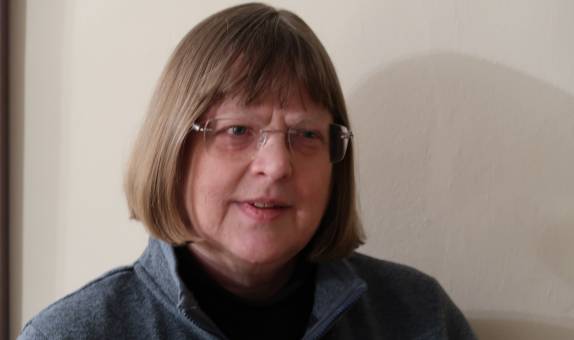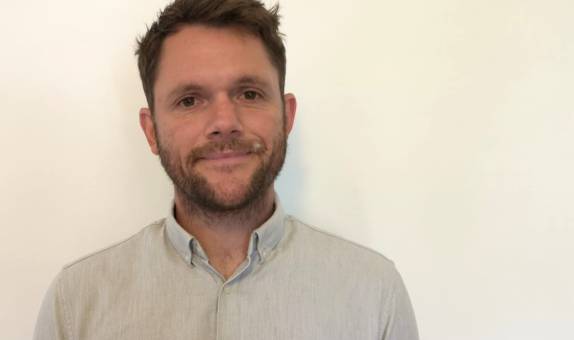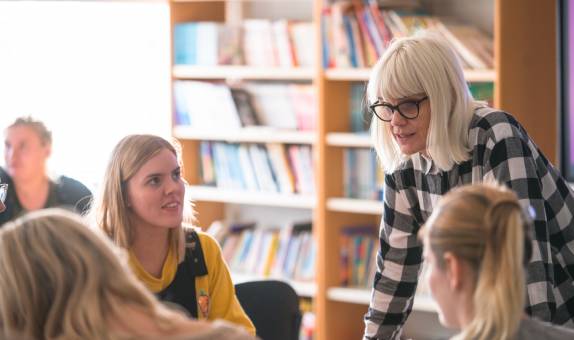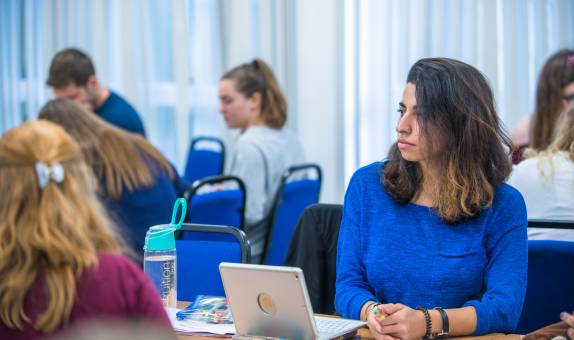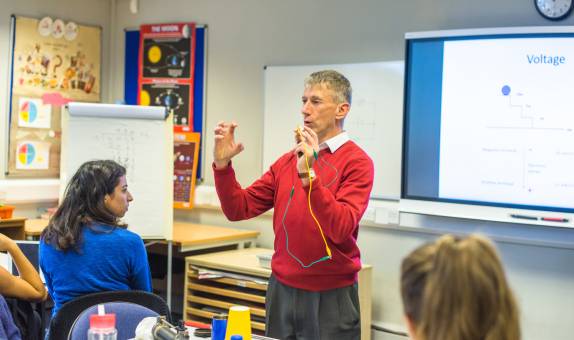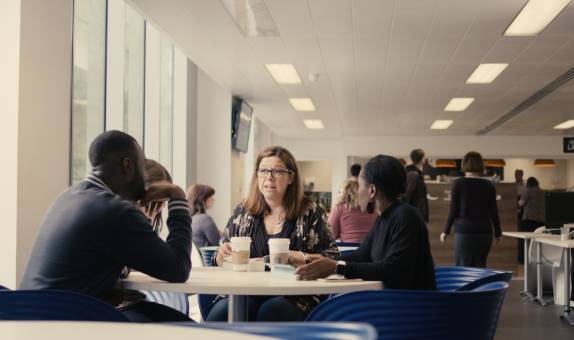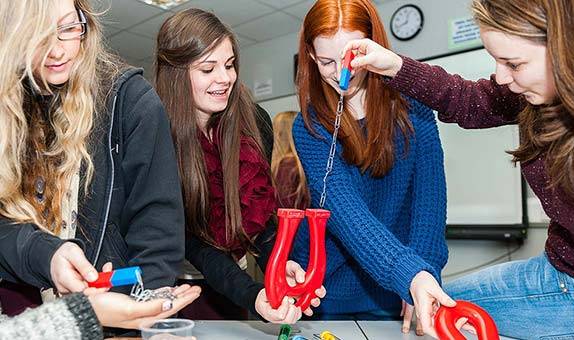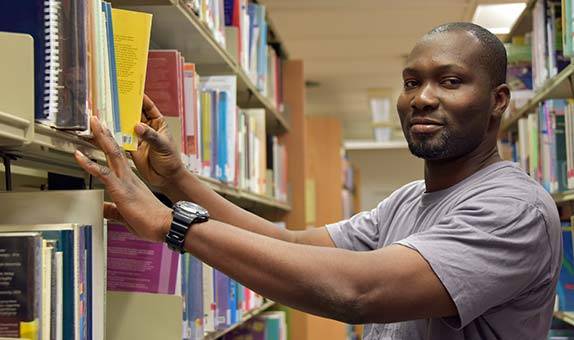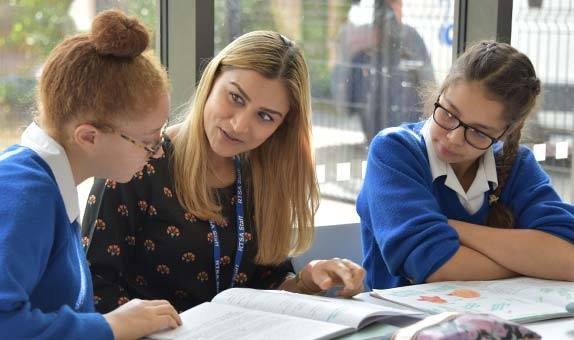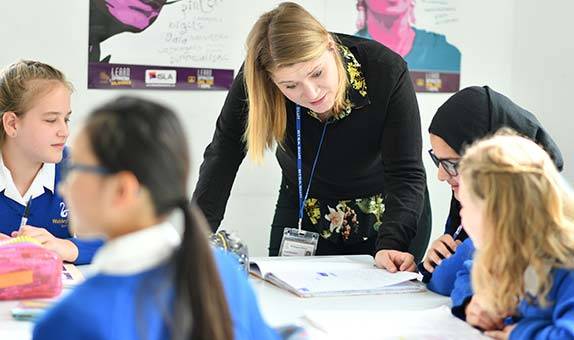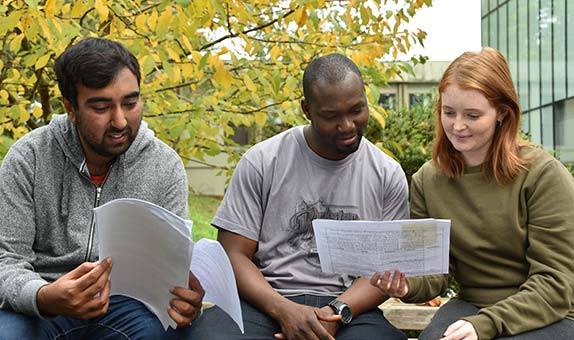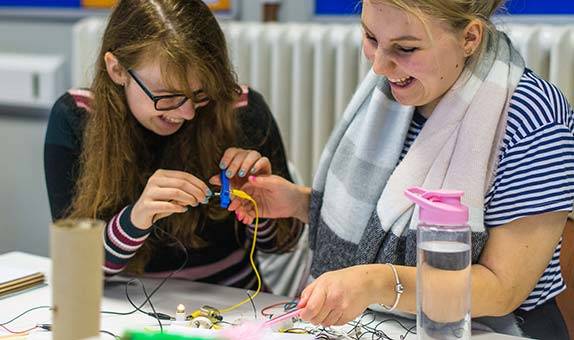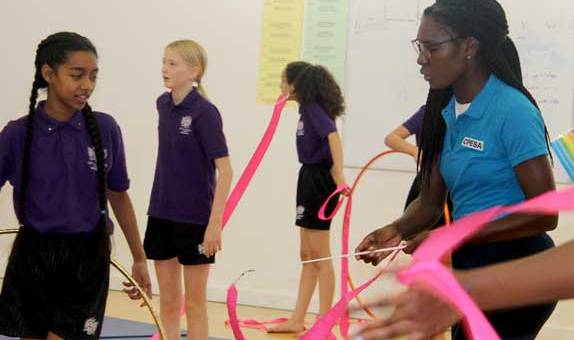Primary Teaching leading to Qualified Teacher Status (QTS) PGCE
Why choose this course?
Make a difference to children's lives by training to become a teacher through one of our PGCE Primary pathways.
This course will enable you to become an effective, inclusive and evidence-informed teacher. At the heart of our course is a commitment to personalising your journey to Qualified Teacher Status (QTS). You will grow in confidence and competence with our outstanding support as you train to become a teacher.
We will help you develop a deep understanding of the primary curriculum and acquire a range of teaching methods, based upon the latest research in education. You will find a supportive learning environment at the University and in our partnership schools. You will benefit from two contrasting placements in our committed partnership of schools, spending two-thirds of your course across both placements. You will also have four weeks of Intensive Training and Practice (ITAP) to support your development as a teacher.
You will have a wide range of learning experiences, including our day field trips where you will consider how to make use of the world beyond your classroom door.
You will also benefit from a course that supports you in becoming a reflective, research-engaged teacher who can use evidence to drive improvements in young people's learning and wellbeing. Your PGCE modules form part of our MA Education, which you can continue with beyond your PGCE year.
| Pathway | UCAS code | Mode | Duration | Start date |
|---|---|---|---|---|
| General Primary | X100 | Full time | 1 year | September 2024 |
| Primary (3-7 years) | X121 | Full time | 1 year | September 2024 |
| General Primary (with Mathematics) | 3822 | Full time | 1 year | September 2024 |
| Main Location | Kingston Hill |
Reasons to choose Kingston University
- This course will enable you to become an effective, creative, inclusive and evidence-informed teacher.
- You will have personalised support, both from the University and partnership schools.
- Two thirds of the course is spent on school placements.
What you will study
You will learn about pedagogy (the art of teaching), including learning theories and child development, alongside the subjects of the national curriculum and the early years foundation stage framework. Together, this learning will help you understand how best to teach each subject to children of different ages, needs, attributes and experiences. You will also explore key professional issues, such as safeguarding and supporting pupils with special educational needs and disabilities (SEND).
We model good teaching as we train you, so you can transfer what you have experienced into your own practice.
Modules
Core modules
Professional Practice
0 credits
Non-credit bearing module
This module focuses on developing your ability to teach, assess and undertake your professional responsibilities in your chosen phase of education. It is part based at the University, where lectures, seminars and online learning will provide you with research, theory and practice based insights into effective learning and teaching. It is largely based upon your practice in school and settings, where you receive formal training, experience of working alongside professionals, experience of being the lead practitioner in a classroom/setting and experience of the wider aspects of being a teacher.
The Reflective Teacher
30 credits
This module introduces you to theories of reflective practice and the value and purpose of reflection for teachers. This will enable you to develop in-depth understanding of how you reflect in order to identify issues and develop solutions in your professional settings.
The main features of the module are critical explorations of factors that affect how children develop physically, socially and as learners. You will critically analyse issues relevant to your current practice, considering your own position as an effective teacher.
Through completion of a reflective journal during the module, you will develop critical, reflective and reflexive skills to inform peer and colleague discussion within a learning community. You will be encouraged and supported to challenge and develop your professional practice.
Perspectives on policy, practice and professionalism for teachers
30 credits
This module enables you to locate yourself as an emerging professional within wider discourses about teaching as a profession. It allows you to evaluate your own identity as a professional and reflect on the values that you and the wider profession hold. You will critically analyse discussions and debates which affect classroom practice. These debates will focus on specific areas to exemplify wider issues in education. The focus of these discussions will be on inclusive teaching and learning and the legislative frameworks which provide codes of practice.
A key focus of the module is to develop your ability to make sense of education research and to apply this in the context of your school or setting.
Entry requirements
Teaching and assessment
Your taught sessions will be a mix of seminars, lectures, practical workshops, field trips and work with pupils. Peer-led critical support groups will also feature in the programme. Most of your sessions will be taught by university tutors but there may also be guest speakers, such as headteachers or subject leaders.
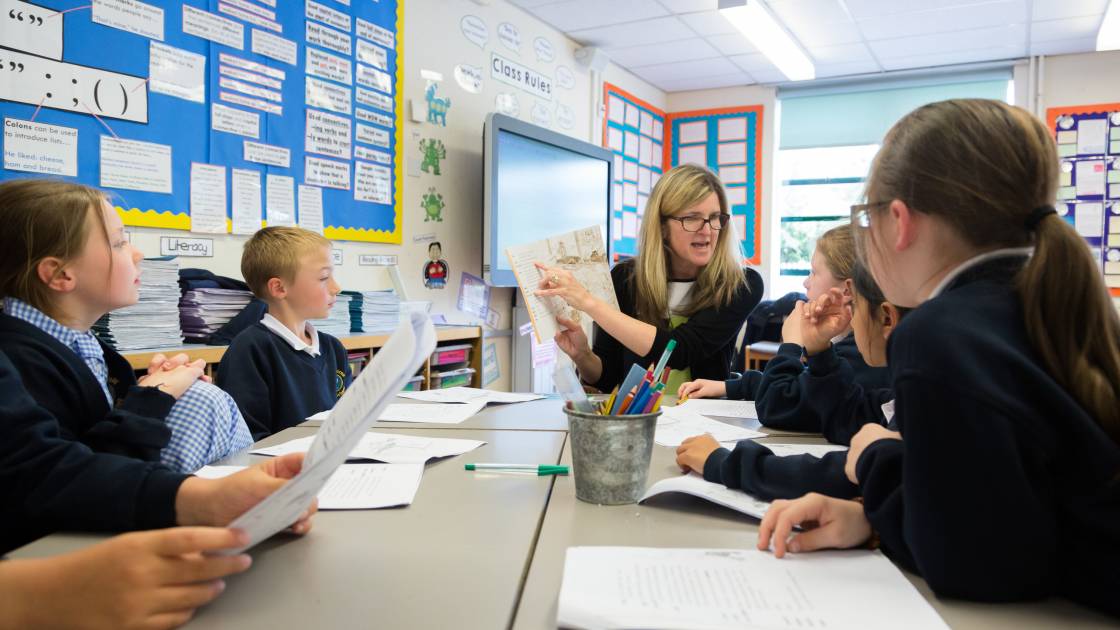
School placements
Your course is designed to allow trainees to spend 120 days in school, teaching pupils from across the primary and primary (early years) age ranges. You will work alongside experienced teachers to develop your professional skills, knowledge and understanding. You will take increasing responsibility for children's learning over your two placements.
Your main placements will be in different schools. This means that you will experience a range of classroom settings and work with children from different backgrounds.
The partner schools are generally situated within 25km of the University. However, we also have some excellent partnership schools in Surrey, Hampshire and other London boroughs if you are based in one of these areas.
Who teaches this course?
The tutors for your course have experience teaching in schools. They continue to be actively involved in a range of education related activities, such as further study, research and direct work with schools and in educational settings.
Research areas
Many of our staff in the Department of Education are research active. This ensures they are in touch with the latest thinking and bring best practice to your studies.
Education research at Kingston focuses on:
- Subject pedagogy
- Curriculum design
- Planning
- Assessment
- Safeguarding
- SEND and inclusive practice
- Early Years
- Supporting more able learners
- Educational inequalities
- Policy
- History of education
Why choose Kingston's Department of Education
Fees for this course
Additional costs
Depending on the programme of study, there may be extra costs that are not covered by tuition fees which students will need to consider when planning their studies. Tuition fees cover the cost of your teaching, assessment and operating University facilities such as the library, access to shared IT equipment and other support services. Accommodation and living costs are not included in our fees.
Where a course has additional expenses, we make every effort to highlight them. These may include optional field trips, materials (e.g. art, design, engineering), security checks such as DBS, uniforms, specialist clothing or professional memberships.
Facilities
While you are studying to become a teacher much of your time will be spent putting your skills into practice within a school environment. The rest of the time will be spent being taught by highly experienced professionals.
The Kingston Hill campus features an outdoor learning environment where trainee teachers lead curriculum-linked natural sciences activities with children. It includes a specially built 'cubby house', outdoor pond, beehive, nature trail and forest school. It offers students the opportunity to simulate teaching and learning with natural materials.
There are a number of teaching rooms set up to replicate actual classrooms. Each classroom is subject based - such as an art room, science lab, and each is equipped with all the relevant facilities you will need to practise your lessons before taking them into school.
Our library (the Nightingale Centre) has an excellent range of teaching resources to help you plan and teach your lessons, such as a range of children's topic books, music and nursery rhymes on CD, as well as artefacts and kits that can be used to illustrate historical periods, different religions, science, maths and music.
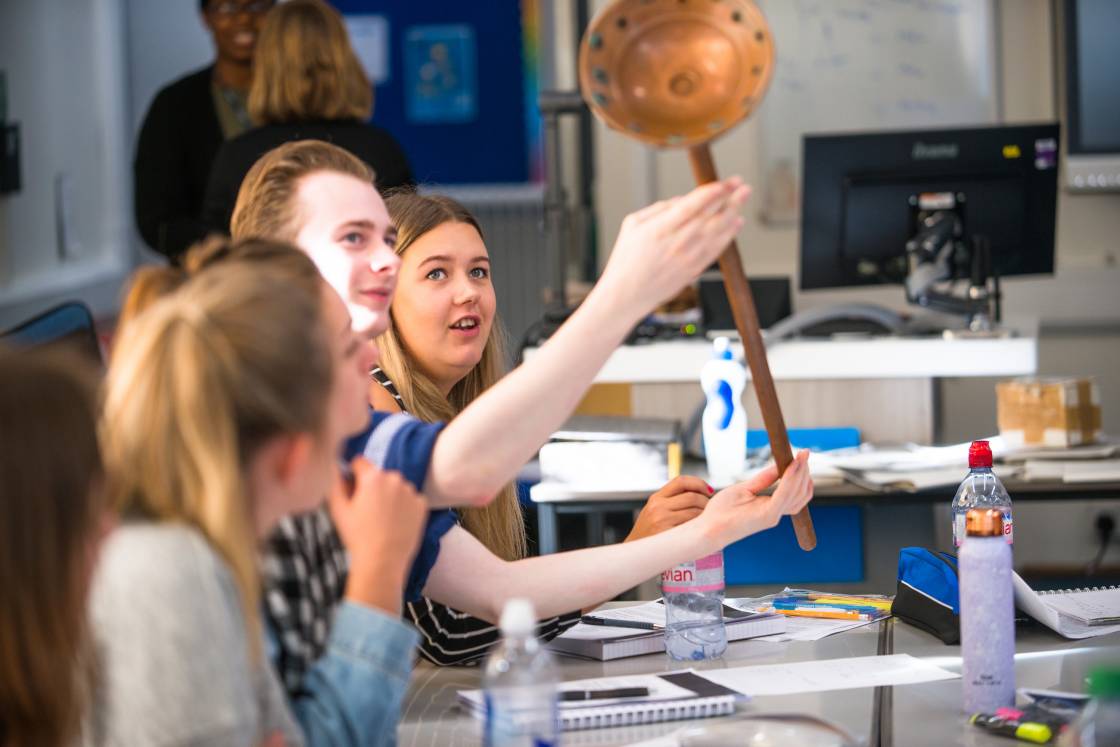
How we work with industry partners
We have links with:
- a strong partnership of schools and settings in which you'll train;
- special schools;
- teaching school alliances;
- multi-academy trusts;
- schools and settings-centred Initial Teacher Training providers;
- local authorities;
- teaching unions; and
- other universities around the country to share good practice.
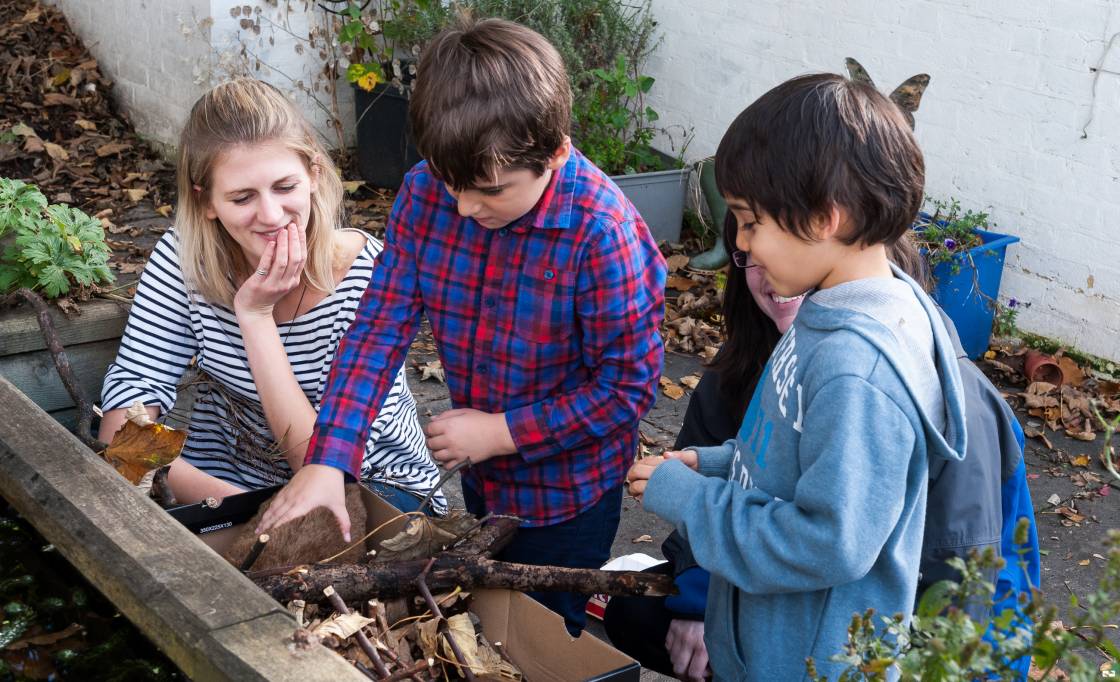
After you graduate
Our graduates become primary teachers. Many go on to attain middle and senior management roles in schools. The course also offers a path to a masters qualification.
What our students say
Course changes and regulations
The information on this page reflects the currently intended course structure and module details. To improve your student experience and the quality of your degree, we may review and change the material information of this course. Course changes explained.
Programme Specifications for the course are published ahead of each academic year.
Regulations governing this course can be found on our website.
